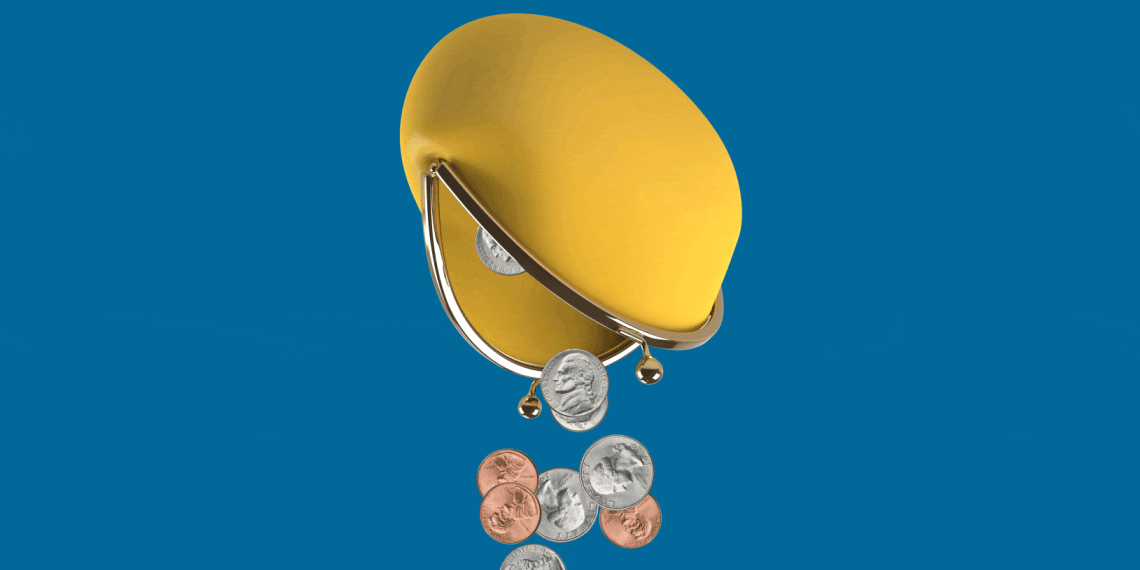
When money gets tight, it can be tempting to ease the pressure by pulling funds from your 401(k) or IRA, taking out a line of home equity or tapping into your pension. But keep one thing in mind: These should all be part of your long-term savings plan, meaning that they’re investments in your future and retirement. So, before you deplete any of these sources, it’s a good idea to evaluate the complex pros and cons of withdrawals in order to avoid costly missteps. Here’s how.
401(k)
One of the key provisions of the Coronavirus Aid, Relief, and Economic Security Act, or CARES Act, which was passed by Congress in March 2020, reduced the early withdrawal penalty that normally accompanies 401(k) cash outs. If you’ve been impacted by the COVID-19 crisis, the act allows you to borrow up to 100% of your balance, or $100,000, whichever is less. It also scraps the 10% early withdrawal penalty and the 20% federal tax withholding.
Less expensive, however, does not mean free. Your original contributions were pretax, so you will owe taxes on however much you withdraw. The taxes can be spread out over three years, but it’s a bill you’ll still have to pay.
You’ll also be taking a big hit to your potential upside. Withdrawing $10,000 may help you through a short-term crunch. But, assuming a 6% compounded annual return, that money could grow to $57,435 in 30 years.
IRA
The CARES Act includes a similar early withdrawal provision for IRA holders affected by COVID-19. Owners can take out up to $100,000 in 2020 and repay the money within three years with no federal income tax hit. Sounds simple, right? Unfortunately, it’s not.
To benefit from this provision, you still have to file interim tax returns on the money you withdraw, spread over the entire period. So if you take out $100,000 now and pay it back in 2023, you’ll owe taxes on $33,333 for 2020, 2021 and 2022. When you do pay the money back, you can get all that tax refunded—just as soon as you file amended tax returns for each of those three years. In other words, this is a great option if you love wading through mountains of paperwork.
An early IRA withdrawal may also be expensive in the short term. Why? Because it’s income, and if tax rates go up in the next three years—always a possibility—then a sizable chunk of that “tax-free” cash that you “freed up” by making the withdrawal will go toward…paying taxes. Yes, it’s money you’ll get back—but only if you file those amended returns.
Home Equity
This may be the most user-friendly solution for a short-term cash crisis: Most home values have risen in the last few years, interest rates are at historically low levels, and borrowers can choose between a home equity loan or a home equity line of credit (HELOC).
This solution does not, however, provide an endless fountain of cash. The amount you can borrow will depend on your loan-to-value equity, which is usually the appraised value of your home minus your current mortgage balance. At best, expect to be eligible for around 80% of that amount. There will also be closing costs on the process, so factor that bill into your decision.
It’s crucial that you run the numbers carefully and plan for the long term. There are two timelines for paying back a HELOC: the “draw period,” which lasts the first few years, and the “amortization period.” During the draw period, you’ll only need to pay monthly interest. But when you move into the amortization period, you’ll have to start paying off the principal of the loan as well.
Keep in mind that property values can plunge during a recession and may do so in the wake of the COVID-19 crisis. If you do take out a home equity loan or HELOC and the value of your property goes down, it’s possible that your debt on combined housing loans will exceed what your home is worth.
Pension
Some companies allow you to cash out your pension early as a lump sum, which may seem like an attractive option if you need an urgent cash infusion. But for anyone focused on retirement, this is a major decision. You’re trading a guaranteed lifetime of monthly annuity payments in exchange for a one-time injection of cash for which you, and you alone, are responsible.
Pensions in this day and age are rarities, of course, and they take years to accrue significant value. So even though you may be in dire need of short-term cash, consider your long-term fiscal future. How close are you to retirement? Do you have other savings? What will your expenses be and what income can you expect? Depending on the answers, you may decide to focus on finding an alternative source of cash.
If your pension remains the best option, there are other issues to consider. If you don’t roll the payment over directly into an IRA, it will be counted as income and will be taxed. And if the payout is large enough, it could push you into a higher tax bracket. If you do put it in an IRA, you’ve just forfeited the liquidity that you likely sought.
Let’s say you take the tax hit, hold on to a chunk of the payout and invest the rest. In that case, you’ll be subject to all the whims of the market—which is the polar opposite of the fixed security provided by a pension. If you have other options, this particular nest egg may serve you best by remaining untouched.
Seth Kaufman is a journalist and ghostwriter based in Brooklyn. His work has appeared in The New York Times, The New Yorker online and many other publications.
Saving up for something big? See how close you are to your goal with our Savings Calculator.

